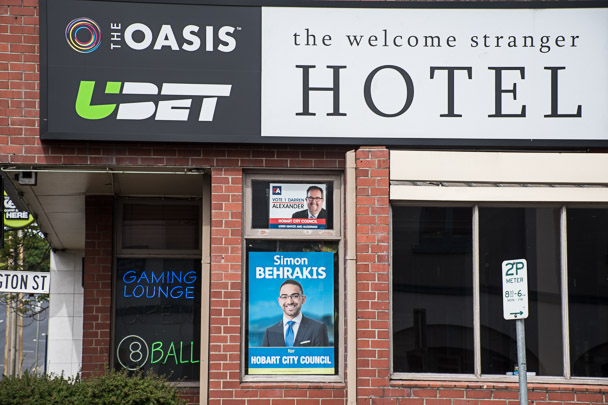Tasmanian government backs political donations disclosure for council candidates

The Gutwein government has bowed to public support for political donations reform and agreed that a bill on local government elections will include a requirement that gifts and donations to council candidates be disclosed.
Tasmania is the only state in Australia that does not require local government candidates to disclose gifts and donations received for their election campaigns.
Last week the Minister for Local Government, Mark Shelton, said that a proposed new Local Government (Elections) Bill would include a provision requiring candidates to declare gifts and donations. Key details were yet to be finalised.
Roland Browne, a director of Tasmanian Election Inquiry, a group pushing for greater political donations transparency, said he wanted the government to explain exactly what it was proposing.
“We will welcome reform for local and state government that achieves disclosure in real time, effective spending limits and a prohibition on corporate donations and gifts, especially from property developers and gambling interests and their associated lobby groups,” Browne said.
A draft of the bill was originally due to be completed by the end of July and debated in parliament by the end of the year. However, the bill is likely to be delayed due to the coronavirus crisis.
A long and winding road to disclosure
In June 2018, Peter Gutwein, the then minister for local government, announced a major review of legislation covering the area.
A discussion paper released in December 2018 noted that during the local government elections held two months earlier there had been public debate about donations disclosure and ensuring common transparency standards for both sitting and new candidates.
The Department of Premier and Cabinet acknowledged there was community concern about the secrecy of campaign funding and some councils supported greater disclosure for gifts and donations, but the Integrity Commission made no mention of the issue in its submission to the review.
The Environmental Defenders Office (EDO) proposed that donations to local governments be capped, developers be banned from making contributions and real-time disclosure mandated. The EDO also suggested there should be “strong penalties” for breaches of the new disclosure provisions.
Ninety-six per cent of the survey respondents either strongly agreed or agreed with the proposition that “all local government electoral candidates should be required to disclose gifts and donations.”
For its part, the Tasmanian division of the Property Council of Australia, which represents major property development companies, made no mention of political donations in its submission.
In the July 2019 directions paper issued for a second round of public comment, the Department of Premier and Cabinet proposed disclosure be required of all gifts and donations “received during the electoral period” and that this be administered by the Tasmanian Electoral Commission.
As part of the public consultation, the department undertook an online survey of 51 key proposed reforms, including a question on donation changes.
The result (p. 18) from 482 respondents was overwhelming. Ninety-six per cent either strongly agreed or agreed with the proposition that “all local government electoral candidates should be required to disclose gifts and donations”.
The devil in the detail
While public support for donations disclosure is strong, there is uncertainty about how strict the specific provisions of the bill will be.
One critical issue is whether the proposed bill will require all donations to be disclosed or a threshold set that could effectively preclude many donors ever being known, as currently occurs with national legislation.
Further issues include whether the bill will endorse real-time disclosure so that donors are public before voting begins, and whether a narrow date range in which donations need to be disclosed will create a loophole allowing funding to be concealed.
The Tasmanian Electoral Commission currently requires local government candidates to file returns covering expenditure between one month prior to the notice of the election and the closure of the polls. Expenditure returns must be submitted within 45 days after the count has been finalised.
Similar provisions applied to candidates’ campaign income would ensure donations made well before the poll would be excluded, with disclosure only occurring well after the election was over.
A government spokesperson said “specific provisions and definitions will be considered and developed as part of the drafting task”.
Browne said Tasmanian Election Inquiry wanted the bill to emulate New South Wales legislation in blacklisting donations from some sectors.
“In NSW, donations from property developers and gambling interests to local government are prohibited, and that state has a powerful Independent Commission Against Corruption to enforce the law. Tasmania has neither, and needs both,” he said.
 @BobBurtonoz
@BobBurtonoz